3 Keys to Overcoming Email Overload - Part 2: Loss of focus
This is the 4th in a series of blog posts designed to help you recognise the profound and far-reaching impact email overload has in your life and to offer solutions to help you overcome the challenges it presents.
There are 7 Critical Impacts of Information & Email Overload (get the free Special Report here)

Impact #2: Loss of Focus
Business interruptions come in two types: external disruptions from phone, e-mail or by colleagues, and internal interruptions from mental distractions or self-dialogue.
Some of these interruptions, of course, are part of doing business, particularly in these days when companies are encouraging teamwork and collaboration, But often they are personal and non-business related.
The time lost to interruptions is one thing. What is often under-estimated is the amount of time it takes to recover from such interruptions. A Basex report shows that ‘most knowledge workers lose about 2.1 hours a day to constant interruptions and ‘recovery time’. “A 30-second interruption can take a worker 10 minutes to get back into the flow of work," notes Jonathan B. Spira, CEO and chief analyst at Basex.
As a result, many knowledge workers have a tough time prioritising tasks and setting boundaries. If a superior asks for urgent assistance on a multi-million dollar deal, interrupting one's workflow makes sense. But if a colleague drops by or an email or facebook alerts arrives when you’re working to a deadline, minimising the interruption makes more sense if you want to be effective.

Ironically, the companies most active in providing the technology by which we are interrupted and distracted – Microsoft, Google, IBM, Intel – are trying to do something about this. A group of interested researchers from this diverse set of corporations, plus smaller companies, academic institutions and consultancies, created the Information Overload Research Group (IORG), a non-profit interest group dedicated to raising awareness, sharing research results and promoting the creation of solutions around Information Overload.
Their inaugural Conference was held on July 15, 2008 in New York City at which they agreed towork together to understand, publicize and solve the information overload problem. They plan to do this by
defining and building awareness of information overload
facilitating and funding collaboration and advanced research aimed at shaping solutions and establishing best practices
serving as a resource centre to share information and resources, offer guidance and connections, and help make the business case for fighting information overload.
What can do you about it?
Here are 2 quick tips to help you stay focused by minimising or (even better) eliminating interruptions.
Turn off all alerts - with email, this is easily done by turning off all alerts (visual and audible). The major damage email does is not so much WHAT it is as WHEN it arrives – as an unexpected, uninvited, un-negotiated interruption to work you were already busy with. Turning off the alerts allows you to be blissfully ignorant of WHEN each email arrives.
Schedule specific times to check your email - you will be happier to turn off alerts if you have scheduled, designated times to focus on processing a batch of new email. You’ll be more effective getting your important tasks, activities and projects done if able to focus on them WITHOUT email interruptions. Then, when you get to your inbox at the scheduled time, you’ll deal with email more effectively in a designated block of dedicated, focused time.
The next blog post will look at the impact of the multi-tasking that so often results from email overload.
All the best!
Steuart
